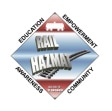KANSAS CITY, Mo. – BNSF Railway Co. has been found in violation of the Federal Railroad Safety Act by the U.S. Department of Labor’s Occupational Safety and Health Administration for disciplining an employee at its Murray Yard complex for following a physician’s treatment plan. The company has been ordered to pay the conductor $12,000 in damages, remove disciplinary information from the employee’s personnel record and provide whistleblower rights information to its employees.
“It is illegal to discipline an employee for following doctor’s orders,” said Marcia P. Drumm, OSHA’s acting regional administrator in Kansas City. “Workers should never be forced to choose between their health and facing disciplinary action. Whistleblower protections play an important role in keeping workplaces safe.”
OSHA’s investigation upheld the allegation that the railroad company disciplined the conductor, who has been employed there since 2004, in retaliation for taking leave in line with a doctor’s treatment plan. The employee was ill and notified a supervisor that he was seeing a doctor the afternoon of Nov. 18, 2013. Following his doctor’s appointment, the conductor immediately notified a supervisor that the doctor had ordered him to stay out of work for the remainder of the day, due to a personal illness. The company then accused the employee of violating its attendance policy and subsequently disciplined the employee.
BNSF Railway has been ordered to pay $2,000 in compensatory and $10,000 in punitive damages, as well as reasonable attorney’s fees. Any of the parties in this case can file an appeal with the department’s Office of Administrative Law Judges.
OSHA enforces the whistleblower provisions of the FRSA and 21 other statutes protecting employees who report violations of various airline, commercial motor carrier, consumer product, environmental, financial reform, food safety, health care reform, nuclear, pipeline, worker safety, public transportation agency, railroad, maritime and securities laws.
Employers are prohibited from retaliating against employees who raise various protected concerns or provide protected information to the employer or to the government. Employees who believe that they have been retaliated against for engaging in protected conduct may file a complaint with the secretary of labor to request an investigation by OSHA’s Whistleblower Protection Program. Detailed information on employee whistleblower rights, including fact sheets, is available at http://www.whistleblowers.gov.
Under the Occupational Safety and Health Act of 1970, employers are responsible for providing safe and healthful workplaces for their employees. OSHA’s role is to ensure these conditions for America’s working men and women by setting and enforcing standards, and providing training, education and assistance. For more information, visit http://www.osha.gov.
 It is getting hotter throughout the country. The Occupational Safety and Health Administration (OSHA) launched a
It is getting hotter throughout the country. The Occupational Safety and Health Administration (OSHA) launched a 